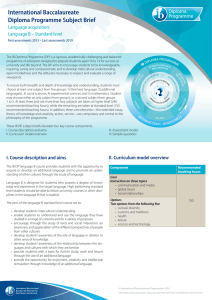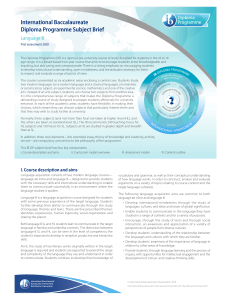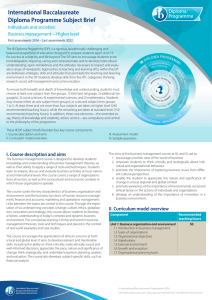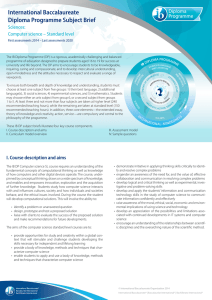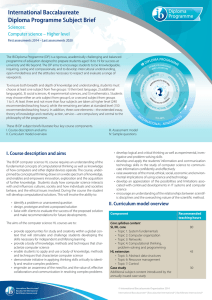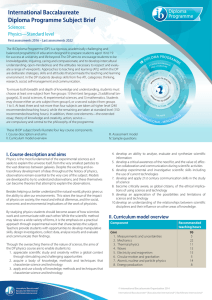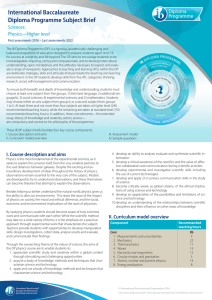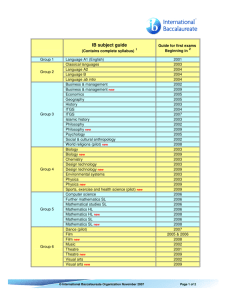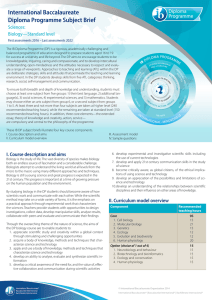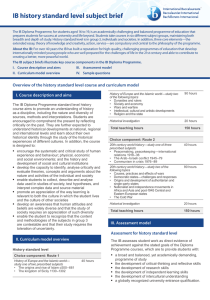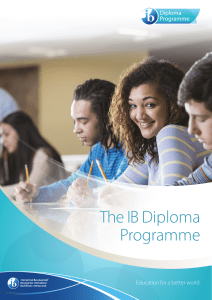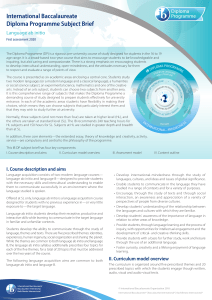Language B HL - International Baccalaureate
advertisement
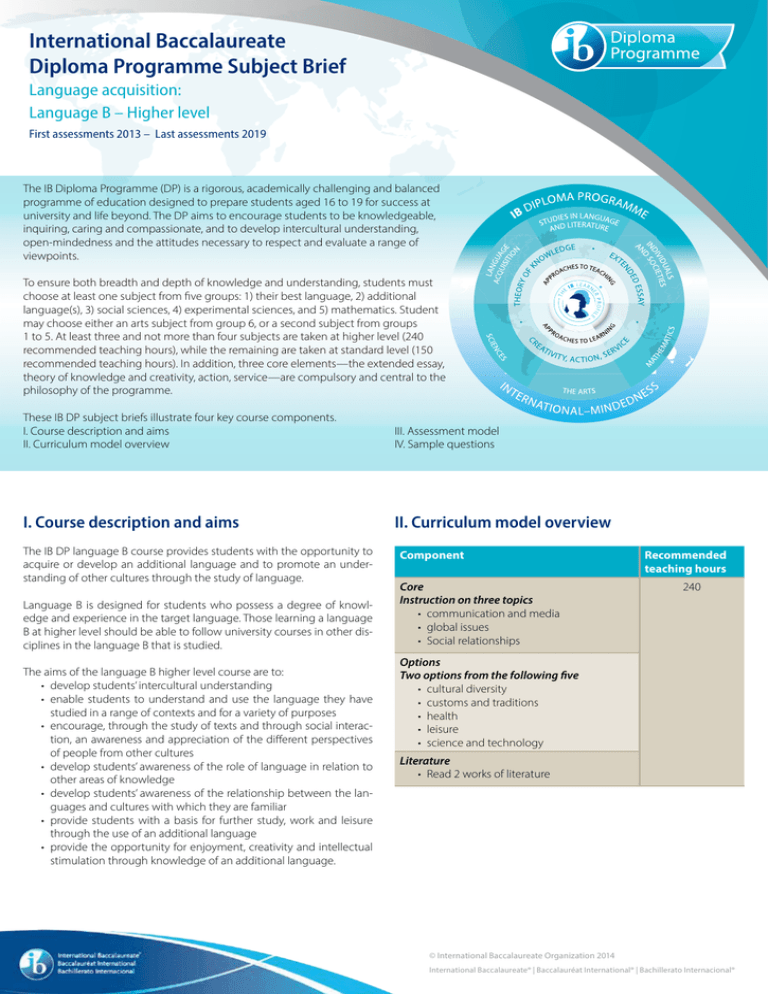
International Baccalaureate Diploma Programme Subject Brief Language acquisition: Language B – Higher level First assessments 2013 – Last assessments 2019 The IB Diploma Programme (DP) is a rigorous, academically challenging and balanced programme of education designed to prepare students aged 16 to 19 for success at university and life beyond. The DP aims to encourage students to be knowledgeable, inquiring, caring and compassionate, and to develop intercultural understanding, open-mindedness and the attitudes necessary to respect and evaluate a range of viewpoints. To ensure both breadth and depth of knowledge and understanding, students must choose at least one subject from five groups: 1) their best language, 2) additional language(s), 3) social sciences, 4) experimental sciences, and 5) mathematics. Student may choose either an arts subject from group 6, or a second subject from groups 1 to 5. At least three and not more than four subjects are taken at higher level (240 recommended teaching hours), while the remaining are taken at standard level (150 recommended teaching hours). In addition, three core elements—the extended essay, theory of knowledge and creativity, action, service—are compulsory and central to the philosophy of the programme. These IB DP subject briefs illustrate four key course components. I. Course description and aims II. Curriculum model overview III. Assessment model IV. Sample questions I. Course description and aims II. Curriculum model overview The IB DP language B course provides students with the opportunity to acquire or develop an additional language and to promote an understanding of other cultures through the study of language. Language B is designed for students who possess a degree of knowledge and experience in the target language. Those learning a language B at higher level should be able to follow university courses in other disciplines in the language B that is studied. The aims of the language B higher level course are to: • develop students’ intercultural understanding • enable students to understand and use the language they have studied in a range of contexts and for a variety of purposes • encourage, through the study of texts and through social interaction, an awareness and appreciation of the different perspectives of people from other cultures • develop students’ awareness of the role of language in relation to other areas of knowledge • develop students’ awareness of the relationship between the languages and cultures with which they are familiar • provide students with a basis for further study, work and leisure through the use of an additional language • provide the opportunity for enjoyment, creativity and intellectual stimulation through knowledge of an additional language. Component Core Instruction on three topics • communication and media • global issues • Social relationships Recommended teaching hours 240 Options Two options from the following five • cultural diversity • customs and traditions • health • leisure • science and technology Literature • Read 2 works of literature © International Baccalaureate Organization 2014 International Baccalaureate® | Baccalauréat International® | Bachillerato Internacional® III. Assessment model The assessments aim to test all students’ ability to understand and use the language of study as well as key concepts through: • learning a language by engaging with its use and meaning within a social framework • developing receptive, productive and interactive skills to meet the objectives of the course. Students’ success in the language B higher level course is measured by combining their grades on external and internal assessment. Students will be assessed on their ability to: • communicate clearly and effectively in a range of situations, demonstrating linguistic competence and intercultural understanding • use language appropriate to a range of interpersonal and/or cultural contexts • understand and use language to express and respond to a range of ideas with accuracy and fluency • organize ideas on a range of topics, in a clear, coherent and convincing manner • understand, analyse and respond to a range of written and spoken texts • understand and use works of literature written in the target language of study Assessment at a glance Type of assessment Format of assessment Time (hours) External Paper 1 Weighting of final grade (%) 70 Receptive skills 1.5 25 1.5 25 Text handling exercise on 4 written texts. Paper 2 Written productive skills through 2 writing exercises Written assignment Receptive and written productive skills 20 Creative writing and rationale based on one literary text read during the course Internal Oral work 30 Individual oral presentation 20 Interactive oral activities. 10 IV. Sample questions Students are asked to write 250-400 words based on one of five available topics, such as: • Social isolation can be considered a problem for today’s teenagers. In class, you have been asked to give a speech to your classmates informing them about the problem. Write the text of your speech. [based on Option: Health] • You are a student at an international school in a (target language) speaking country. Write an article to be published in the school magazine on how your experience at the international school will affect your future job prospects. [based on Option: Cultural diversity] About the IB: For over 40 years the IB has built a reputation for high-quality, challenging programmes of education that develop internationally minded young people who are well prepared for the challenges of life in the 21st century and able to contribute to creating a better, more peaceful world. For further information on the IB Diploma Programme, visit: http://www.ibo.org/diploma/ Complete subject guides can be accessed through the IB Online Curriculum Center (OCC), the IB university and government official system, or purchased through the IB store: http://store.ibo.org To learn more about how the IB Diploma Programme prepares students for success at university, visit: www.ibo.org/recognition or email: recognition@ibo.org
